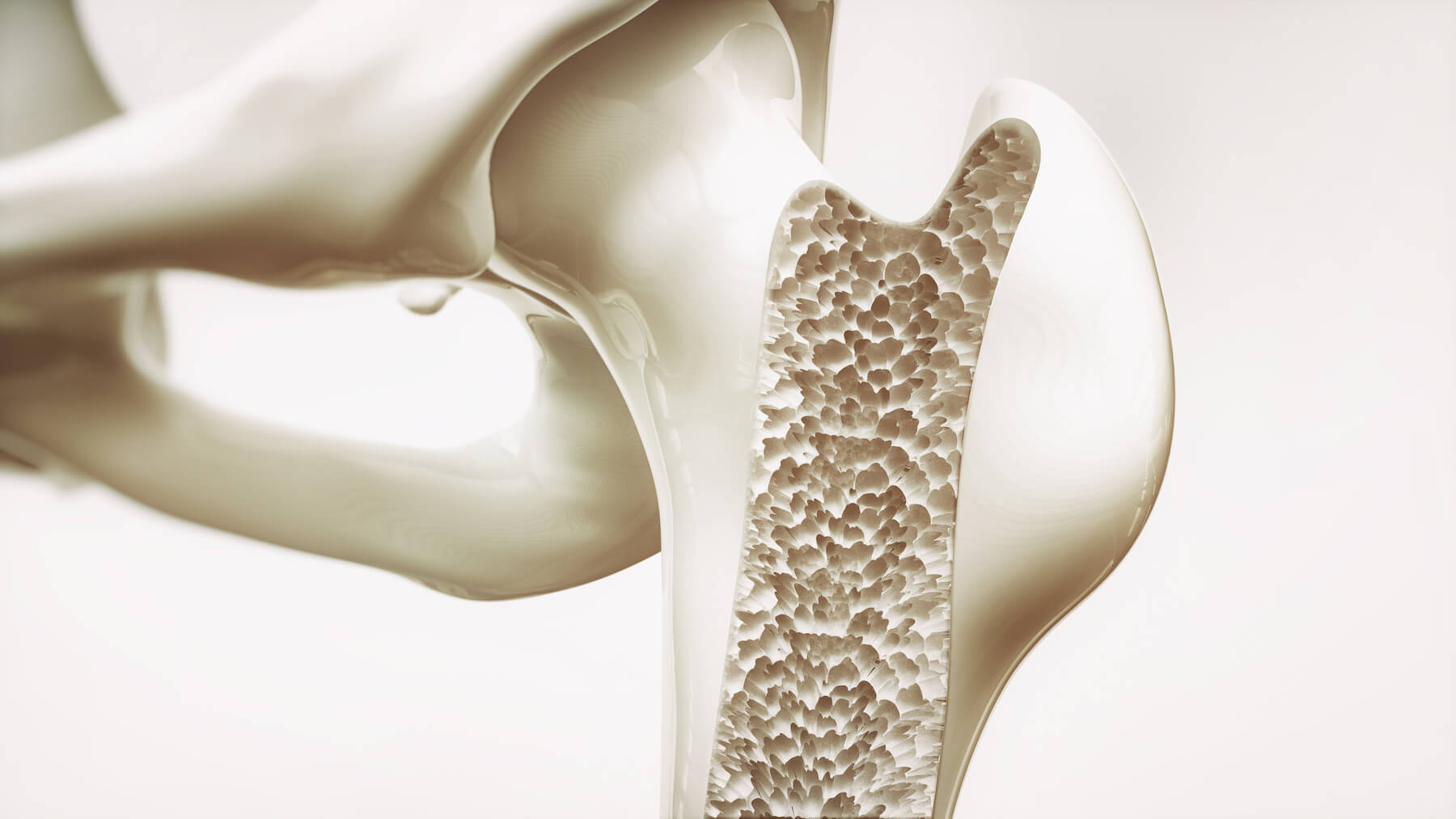Cardiovascular DEXA Screening
Heart Health Risk in Kelowna
Cardiovascular diseases (CVD) are the leading cause of death worldwide.
- Assess heart disease and stroke risk
- Visualize calcified plaque in the abdominal aorta
- Get vital info linked to coronary heart disease
- Calculate visceral adipose tissue (VAT) linked to many metabolic disturbances and disease
DEXA Medical Imaging
The term “dexa” stands for dual-energy X-ray absorptiometry, a technology that uses two low-energy X-ray beams for assessing body composition and bone density.
Measurement Precision
Vascular Calcification Imaging
During a DXA examination, lateral spine single-energy images can be captured and are commonly used to identify vertebral fractures. These images simultaneously capture the presence of abdominal aortic calcification (AAC) associated with cardiovascular disease in older individuals.
Body Visualization
Long Term Health
DXA tests can also help health care providers spot bone loss in people who might have no symptoms.
Bone Mineral Density
People tend to think that bones are static and unchanging, but the truth is that bones are in constant flux. As people age, they often lose bone density, thus becoming porous and brittle.
This bone loss can lead to osteoporosis, and an increased CVD risk. The high-precision X-ray from a DXA scan can measure how many grams of calcium and other bone minerals are packed into a specific segment of bone.
- High levels of calcium in the blood circulation, resulting from bone resorption in osteoporosis, can deposit on the walls of arteries, and calcify part of the vessel wall including the coronary artery, eventually leading to heart disease.
- As well as being quick and painless, a bone density scan is more effective than normal X-rays in identifying low bone density.
- DEXA also offers several advantages compared to other diagnostic imaging scans, such as CT scan, including reduced radiation dose, and decreased scan times.
Visceral Fat
Visceral Adipose Tissue (VAT) is a hormonally active component of total body fat. The measurement reflects the amount of internal abdominal fat around the organs.
- Maintaining a high amount of visceral fat can contribute to a multitude of health complications. The DEXA scan can help predict and prevent heart disease, or other metabolic disturbances.
- Understanding and monitoring health risks related to body fat distribution and bone density, can be used as a tool to diagnose obesity and monitor changes in body composition over time.
Am I Overweight?
Are you in the healthy range? Use this tool to calculate your Body Mass Index (BMI) now to know your risk for obesity-related diseases.
How Healthy Are My Bones?
Take the 1-minute quiz to determine your risk for developing osteoporosis.
DexaCan Plan Options
The DEXA scan is the gold standard procedure for body composition analysis. We offer multiple plans for you to choose from.
- 45 mins | Whole Body Scan + Dexafit Ai App Results
- Accurate measurement and detailed visual imaging of body composition provides valuable information giving detailed breakdown of your whole body mass: weight of your bones, fat, muscle and visceral fat.
- Calculations and measurement of total body mass – lean mass and fat mass (breaks down your total body mass by region, including arms, legs, trunk (left and right), android-apple shape (breast and belly), and gynoid-pear shape (below the waist).
- Estimated amount of visceral fat – the type of fat around the internal organs stored
within the abdominal cavity. - Bone health screening of your whole body bone mass can give a good indication if
you are most likely to have bone loss or bone decrease. - Visual comparison of gradual changes in body mass over time.
- Scores compared to your gender and age group.
- Ideal for those seeking weight management, athletes, fitness enthusiasts,
bodybuilders and to gain the best possible insight regarding body composition. - Monitoring progress over time has never been so easy. Download the Dexafit AI App
on Google Play or Apple App Store for your results. - Our Technologists will guide you through the application and provide you with basic
information based on your results. - Patients will receive an emailed copy of the report.
- 45 mins | Whole Body Scan + Dexafit Ai App Results + Physician Review
- Accurate measurement and detailed visual imaging of body composition provides valuable information giving detailed breakdown of your whole body mass: weight of your bones, fat, muscle and visceral fat.
- Calculations and measurement of total body mass – lean mass and fat mass (breaks
down your total body mass by region, including arms, legs, trunk (left and right),
android-apple shape (breast and belly), and gynoid-pear shape (below the waist) - Estimated amount of visceral fat – the type of fat around the internal organs stored
within the abdominal cavity. - Bone health screening of your whole body bone mass can give a good indication if
you are most likely to have bone loss or bone decrease. - Visual comparison of gradual changes in body mass over time.
- Scores compared to your gender and age group.
- Physicians review the results in approximately 1-2 weeks, may advise on lifestyle
modification, recommend further testing, treatment, or referrals to specialists if necessary. - Ideal for those curious about health, planning to get healthier, losing weight and gain
the best possible insight regarding body composition. Breast health screening based
on BMI and body fat. - Monitoring progress over time has never been so easy. Download the Dexafit AI App on Google Play or Apple App Store for your results.
- Our Technologists will guide you through the application and provide you with basic
information based on your results. - Patients will receive an emailed copy of the report.
- 45 mins | Osteoporosis Screening + Results + Physician Review
- Evaluation of bone density loss or low bone mass in the hip, spine and sometimes the forearm to determine the risk of osteoporosis.
- Values are compared to others of the same age and gender (Z-scores) or healthy
young adults at peak bone mass (T-scores). - Results help track bone health changes over time:
- Early detection: Can identify bone thinning (osteopenia) at an early stage,
before it progresses to osteoporosis, allowing for timely intervention. - Risk assessment: Helps predict your risk of future fractures.
- Diagnosis: Diagnose osteopenia (low bone mass) and osteoporosis.
- Monitoring: Tracks the effectiveness of osteoporosis treatment.
- Physicians review the results in approximately 1-2 weeks and provide recommendations, treatment, or referrals based on the findings.
- Patients will receive an emailed copy of the completed report.
LAB WORK – Additional cost approximately $200 paid to the lab (subject to change)
- Your blood can also determine your bone health. In addition to the scan, lab work is ordered as part of bone health screening and risk assessment.
- We will provide you with a bloodwork requisition and instruction at the scan
appointment.
- 45 mins | Abdominal Aortic Calcification Scan + Results + Physician Review
- Screening to detect and identify individuals at higher risk for heart disease by assessing Abdominal Aortic Calcification (AAC).
- Lateral DXA is non-invasive, has low radiation exposure, and is relatively inexpensive compared with CT, a helpful screening tool for vascular calcification.
- Measurements can help detect anomalies earlier. The image captures the presence of abdominal aortic calcification (AAC) associated with cardiovascular disease in older individuals.
- The build-up is the hardening of the abdomen’s largest artery. When calcium deposits build up in its walls, it hardens and restricts blood flow.
- Physicians review the findings in approximately 1-2 weeks. Provide recommendations, medical intervention, and may advise on lifestyle modifications
that can help manage or prevent medical conditions. - Patients will receive an emailed copy of the completed report.
LAB WORK – Additional cost approximately $200 paid to the lab (subject to change)
- Your blood can also determine your cardiovascular health. In addition to the scan, lab work is ordered as part of screening and risk assessment.
- We will provide you with a bloodwork requisition and instruction at the scan appointment.
DexaCan is more than your average medical clinic.
How to Manage Heart Health and Protect Your Bones
Who Should Get a DEXA Scan?
A DXA assessment is suitable for people on weight management programs, athletes in training as well as men and women at risk of osteoporosis and bone fracture.
Why choose DexaCan for your private DEXA body scan?
Leading Expertise
Rapid Access
Innovative Diagnostic Imaging
Safety & Comfort
FAQS
A bone density test is mainly done to look for osteoporosis (thin, weak bones) and osteopenia (decreased bone mass) so that these problems can be treated as soon as possible. Early treatment helps to prevent bone fractures.
The complications of broken bones related to osteoporosis are often severe, particularly in the elderly. The earlier osteoporosis can be diagnosed, the sooner treatment can be started to improve the condition and/or keep it from getting worse.
- Little or no exercise or avoiding functional exercises that build muscle
- Poor diet high in carbohydrates, saturated fat, and empty calories
- Poor sleep habits
- Stress
- Excessive alcohol consumption
- Smoking
DEXA scans offer a high degree of precision and accuracy. Medical experts consider DEXA scans to be an accurate test for diagnosing osteoporosis.
Unlike x-ray machines, DEXA machines are checked daily for their ability to measure bone mineral accurately, and no two DXA machines are exactly alike. That is why your healthcare provider will insist that you have all of your DEXA tests done on the same machine.
Most diet and fitness goals focus on weight loss or gain, overlooking that two people of the same sex and body weight may look completely different from each other because they have different body compositions. Measuring your body composition will tell you your own body’s unique makeup and help you identify areas to work on to improve your overall health and wellness.
Getting a better insight into your overall wellness starts with measuring your body composition and going beyond the number on the scale. You will know whether you need to gain more lean mass or lower body fat percentage to achieve a healthy body composition and a better level of health.
Please contact us with questions, or to schedule an appointment. We are always happy to hear from you.
Or call us during clinic hours at 778-760-2161.
"(Required)" indicates required fields






